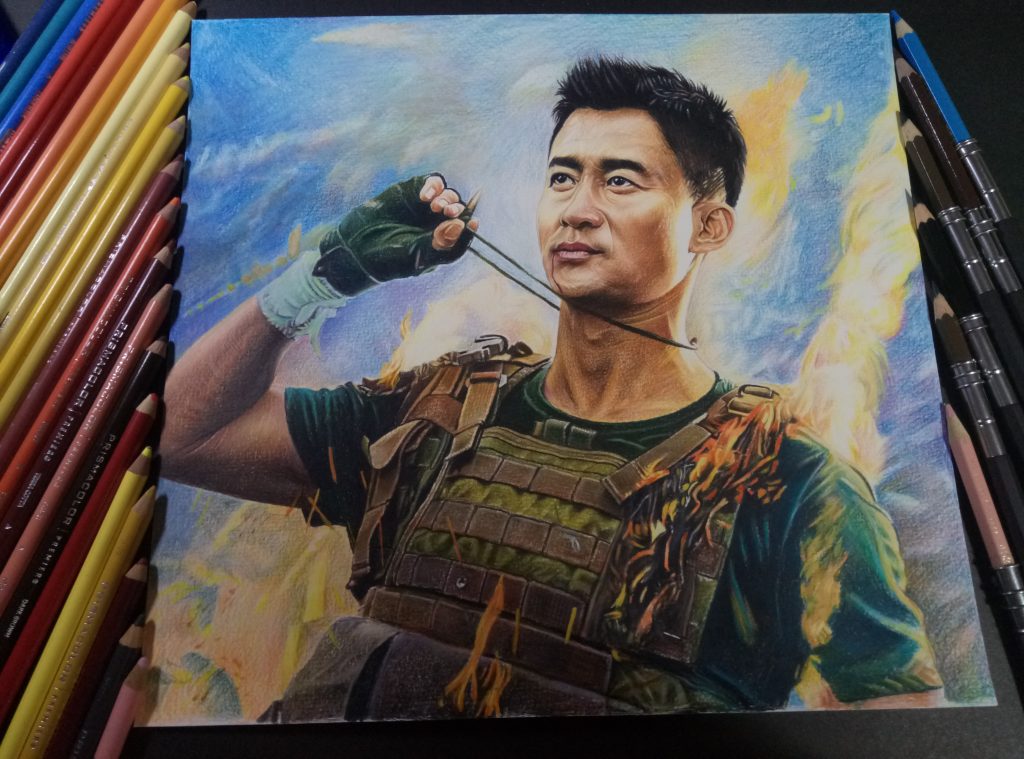
‘Wolf Warrior 2’ and ‘Twenty Two’ Represent China to Compete for the Oscars
On October 5, the Academy of Motion Picture Arts and Sciences announced a list of films that are eligible to compete for the 90th Academy Award for Best Foreign Language Film. This year, there are 92 countries and regions submitting films to compete for this award, and ‘Wolf Warrior 2‘ is the one representing China. In addition, ‘Twenty Two‘, a Chinese documentary on World War II sex slaves, has also been submitted to the Academy to compete in the documentary category. Other submissions from the Greater China region include Hong Kong’s ‘Mad World’ and Taiwan’s ‘Small Talk.’ Read more on Sohu
Debate Arises as China Selects ‘Wolf Warrior 2’ to Compete for the Academy Award
As the Academy revealed this year’s submitted films for the Best Foreign Language Film Award, Chinese audiences have been heatedly discussing if ‘Wolf Warrior 2’ is the right movie to represent China. There is no doubt that ‘Wolf Warrior 2’ achieved unprecedented commercial success. But what people argue about is whether the film’s artistic merit meets Oscar standard. Before 2008, most submissions from China were ancient dramas made by well-established filmmakers. However, since 2008, there seems to be a lot more political considerations added to the decision making process. Although some audiences like the fact that China tries to internationally highlight a film that embodies national pride, most Chinese audiences are not optimistic about ‘Wolf Warrior 2’ being nominated. Read more on yuledujiaoshou
Hong Kong Filmmaker Wong Jing Warns Chinese Parents of the Violent Content in His Film ‘Chasing the Dragon’
‘Chasing the Dragon,’ one of this year’s China National Day box office top 3, tells the story of an illegal immigrant from Mainland China who sneaks into British-colonized Hong Kong in 1963 and transforms himself into a ruthless drug lord. On October 4, Wong Jing, co-director of the film, posted on Chinese social media Weibo to thank audiences for supporting his film as well as Hong Kong cinema. In addition, he reminds audiences, especially parents, that the content in this film is dark, and the characters are flawed. Wong admits that most of the movies he made in the past were not suitable for Children as well, but those films were released in Hong Kong where there was a film rating system. Now that his film is being released in the mainland, he feels the necessity of warning the parents, even if this might slightly sacrifice the film’s box office. Read more on Mtime
‘Never Say Die’ Continues to Lead China’s National Day Box Office with Over $150 Million
According to the box office data from Mtime, China’s total box office during the National Day holiday, which started on September 30, has reached 2 billion yuan ($306 million). Comedy ‘Never Say Die’ continues to lead the competition, scoring 160 million yuan ($24 million) on October 5. As of October 5, the total box office of ‘Never Say Die’ has reached 1 billion yuan ($150 million) after 6 days in release. Read more on Mtime
What’s in Store for the Future of Chinese Animation Studios?
Similar to last year’s situation, Chinese animations have been failing during this year’s National Day holiday. As of October 5, only two animations made appearance on the Holiday box office top 10 list, ranking No. 7 and No. 8 respectively. But the total box office of these two films only just reached 63 million yuan ($9.5 million). Looking at the major players in China’s animation sector, the large-scale studios are usually just divisions of even larger corporations. Their parent companies seem to have less interest in crafting content, but incline to spread out their business, making movies, licensing IPs, selling merchandises, and building amusement parks all at the same time. Meanwhile, most of the smaller but more specialized studios have a hard time making profits, as selling rights is their main revenue source, yet TV broadcasters and streaming sites are not willing to pay high prices to acquire animations. Read more on TMT Post








